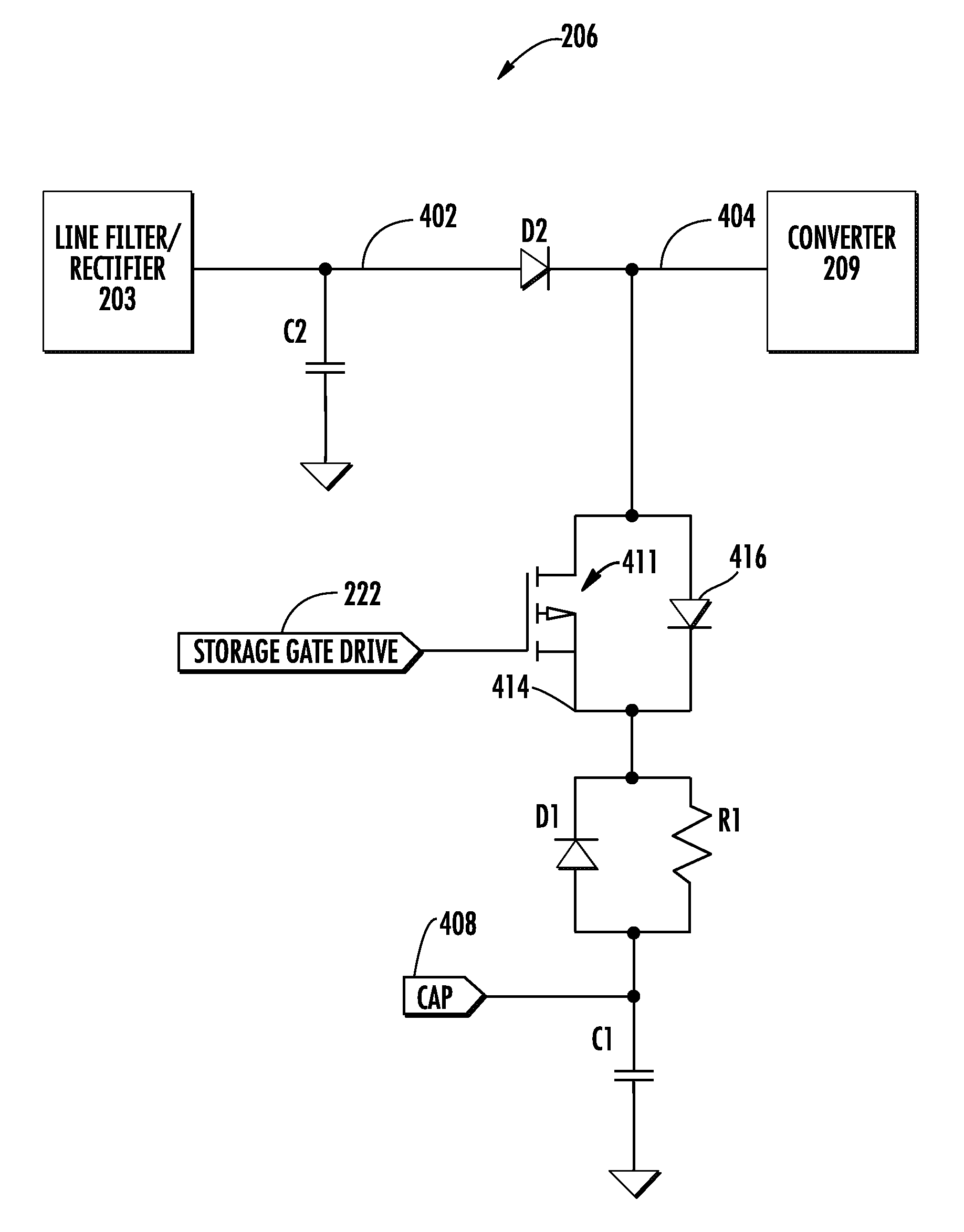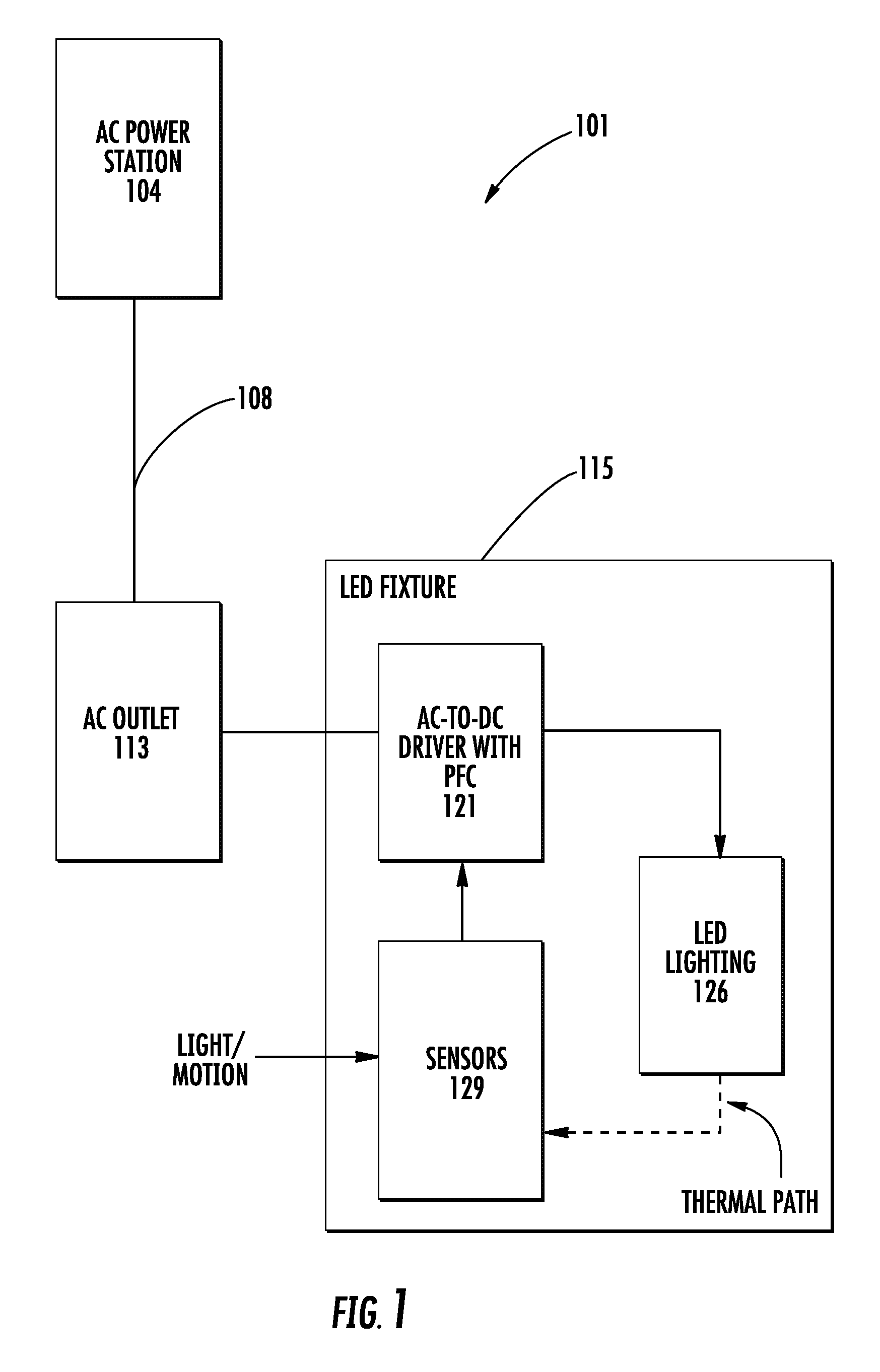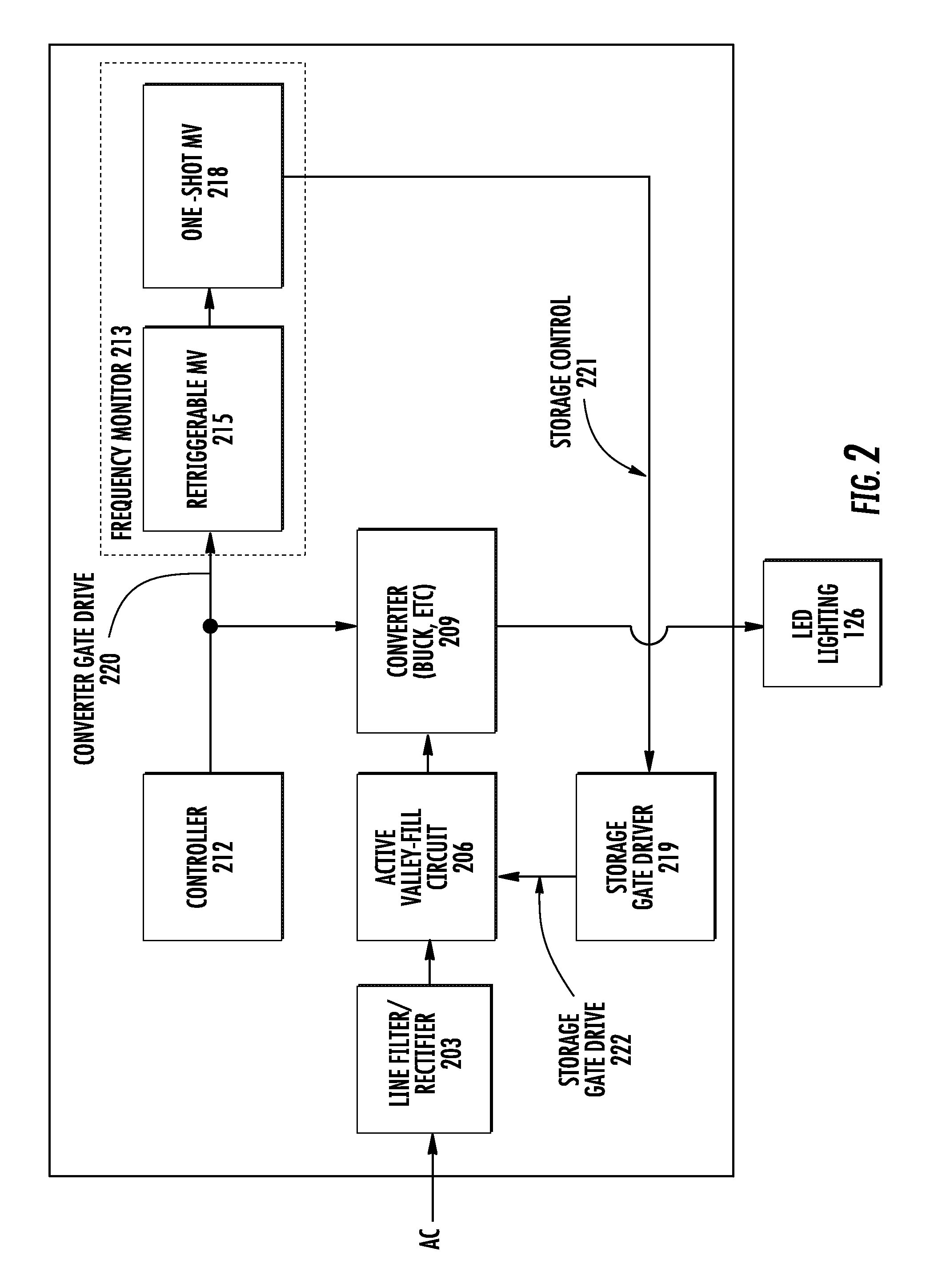Valley-fill power factor correction circuit with active conduction angle control
a technology of conduction angle control and power factor correction, applied in the field of electrical circuits, can solve problems such as increasing the footprint of circuits, and achieve the effects of reducing the footprint, increasing the energy storage density, and improving the operational longevity and durability of circuits
- Summary
- Abstract
- Description
- Claims
- Application Information
AI Technical Summary
Benefits of technology
Problems solved by technology
Method used
Image
Examples
Embodiment Construction
[0022]FIG. 1 shows an AC power distribution system 101 and a load connected to the system. Power is generated by an AC power station 104 and is distributed by transmission lines 108 to an outlet 113 (or other connection point) where an electrical load 115 is connected.
[0023]As an example, the load can be a light emitting diode (LED) lighting, such as used for street lighting or lighting inside a home. LED lighting uses direct current (DC) rather than alternating current (AC) power, which is provided by the AC power distribution system. So, the AC power is converted into DC power user an AC-to-DC converter 121. Since LED lighting is a current device, its driver should have provisions for current control.
[0024]FIG. 1 shows a single load as an example. In a typical system, there are numerous loads (e.g., 2, 3, 4, 8, 100s, 1000s, 10,000, or more). Some examples of loads of a system include street lighting, signal lights, computers, televisions, and many others.
[0025]DC current is suppli...
PUM
 Login to View More
Login to View More Abstract
Description
Claims
Application Information
 Login to View More
Login to View More - R&D
- Intellectual Property
- Life Sciences
- Materials
- Tech Scout
- Unparalleled Data Quality
- Higher Quality Content
- 60% Fewer Hallucinations
Browse by: Latest US Patents, China's latest patents, Technical Efficacy Thesaurus, Application Domain, Technology Topic, Popular Technical Reports.
© 2025 PatSnap. All rights reserved.Legal|Privacy policy|Modern Slavery Act Transparency Statement|Sitemap|About US| Contact US: help@patsnap.com



